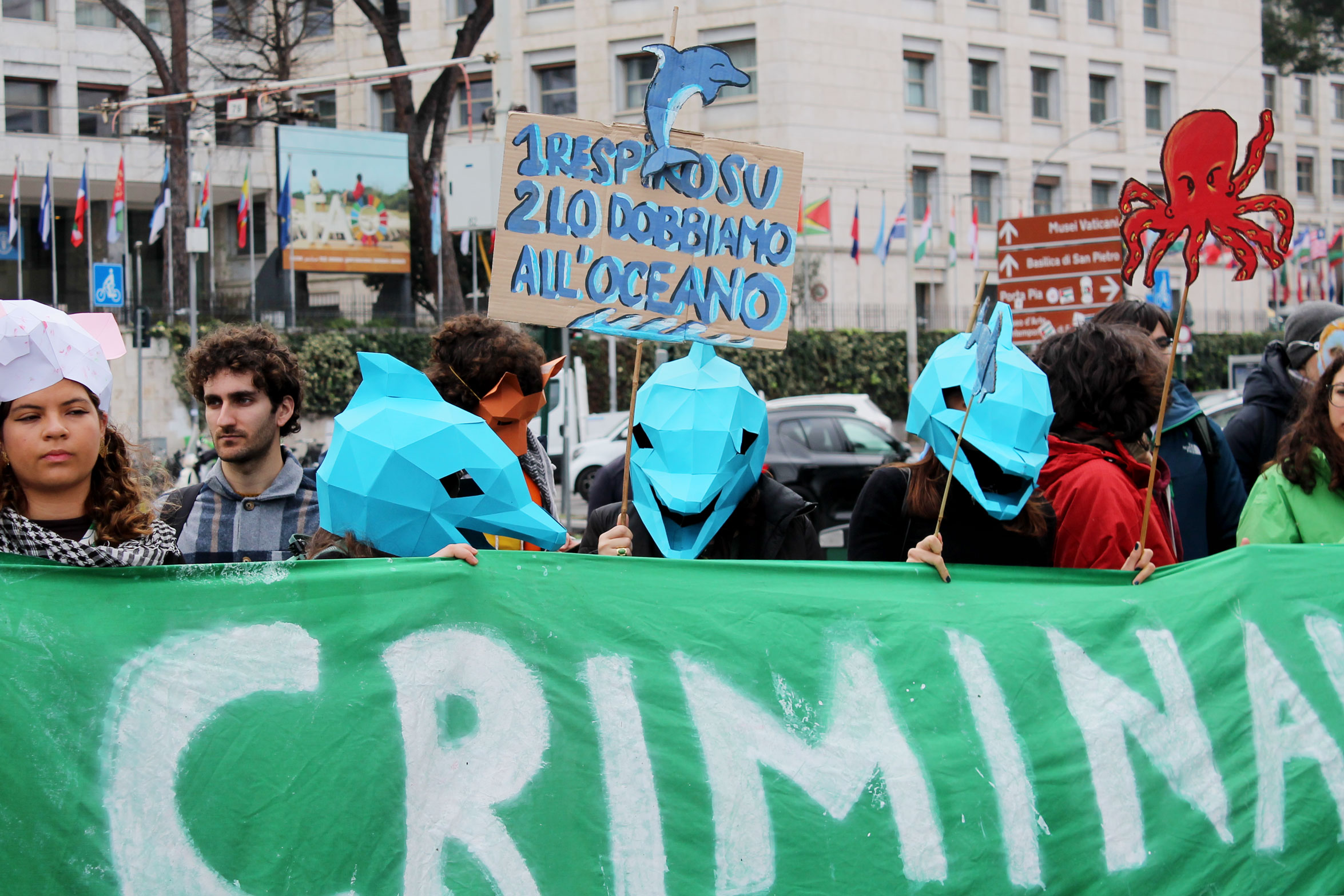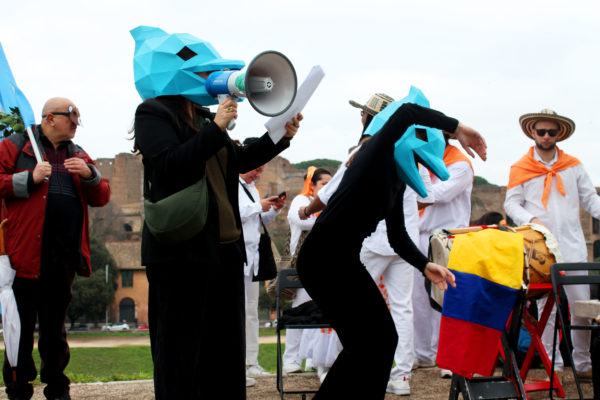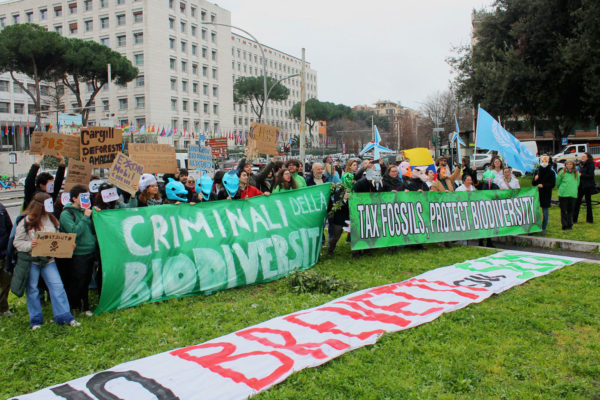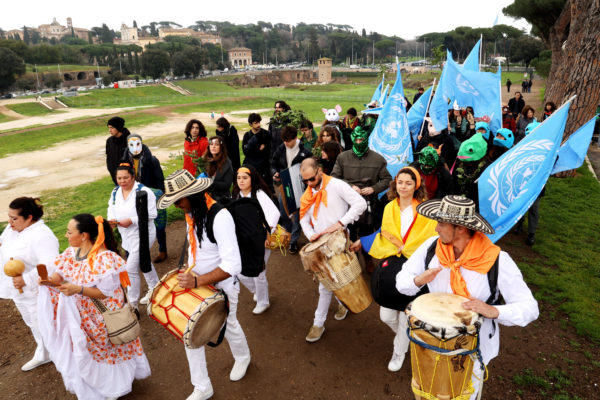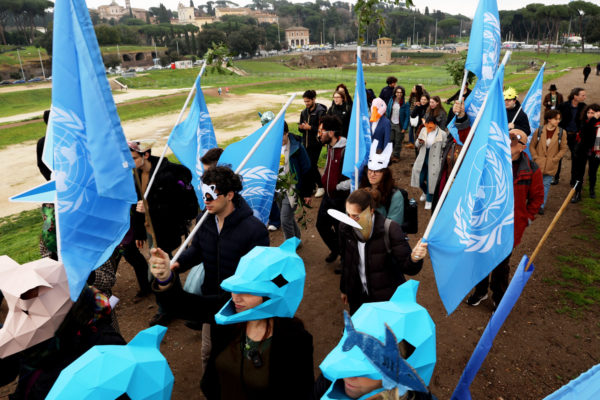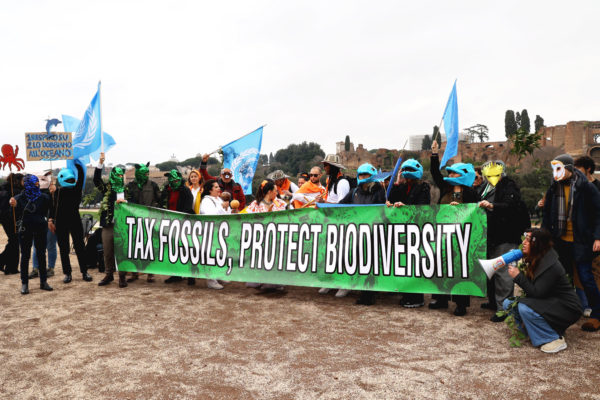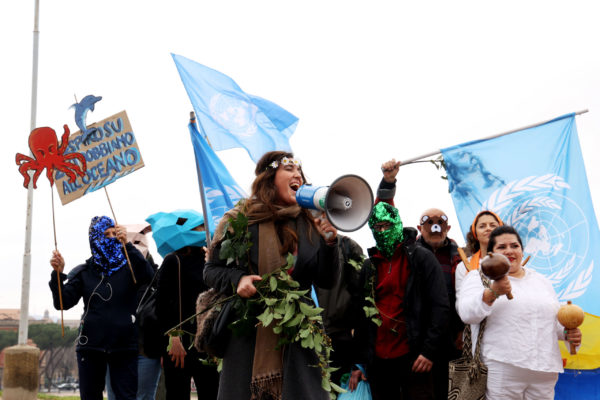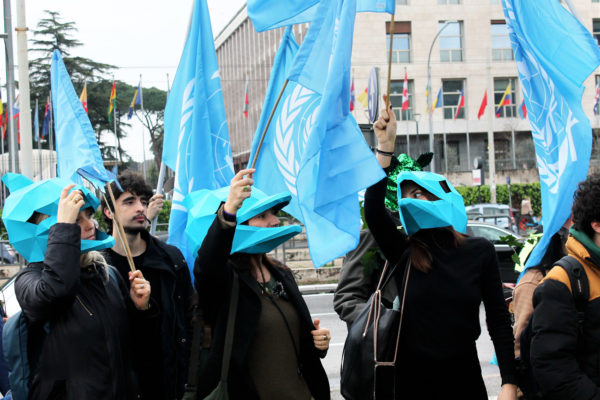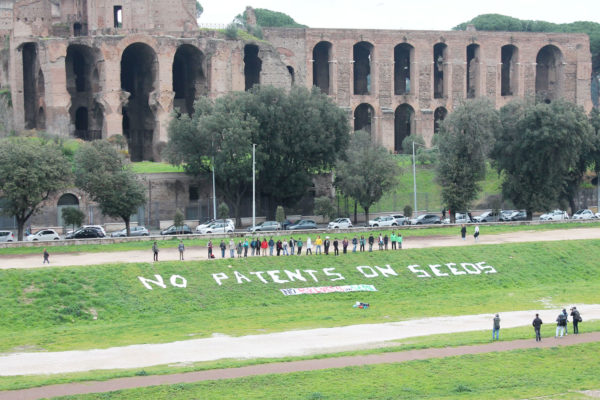The performance to urge greater political and financial commitment from governments during the ongoing COP16 at the FAO
Yesterday, Marevivo also participated in the performance organized by the Climate Pride network at Piazzale Ugo La Malfa, aiming to urge more ambitious political and financial commitments for biodiversity protection, in parallel with the second session of COP16 currently taking place at the FAO headquarters in Rome. The demonstration, organized by various environmental organizations, called for the need to respect planetary boundaries, while promoting well-being, employment, and social inclusion for everyone.
Wearing masks representing various species, a group of activists staged an artistic performance, a kind of ‘COP for Nature,’ with the presence of UN flags, designed to draw attention to the key demands made to the representatives of the nations. This performance, with its strong symbolic charge, is closely linked to the call for concrete actions and increased public funding, directed also to indigenous and local populations, in order to achieve international environmental protection goals.
A few days ago, Marevivo Foundation explicitly called on the Italian delegation at COP to commit to scientific research on marine species: “A fundamental step to remind the same government that established the Ministry of the Sea,” declared Marevivo President Rosalba Giugni on the matter.
On this occasion, the Climate Pride network, to which the Foundation has joined, reinforced the requests made on February 19 by civil society organizations, urging governments to reduce harmful biodiversity incentives by at least $500 billion per year and to mobilize at least $200 billion per year for biodiversity protection by 2030.
In line with the Nature Restoration Law, which aims to restore at least 30% of degraded EU habitats by 2030, 60% by 2040, and 90% by 2050, the Climate Pride network states that, in order to combine resource optimization with ecosystem protection in line with European goals, it is essential to ensure that investments are made without compromising environmental resources (the DNSH – Do No Significant Harm principle).
It is also important to underline that solutions for global biodiversity protection cannot be driven solely by logic that overlooks the necessary paradigm shift, which must first and foremost focus on placing science at the center of strategic decision-making. It should be scientific guidelines, through the involvement of local communities, that guide political choices, not the other way around. It is necessary to finance multidisciplinary protection actions (e.g., agriculture, fishing, forestry, mobility…) to reduce pressures and focus on nature restoration in line with international regulations and treaties, emphasizing nature-based solutions. At the same time, it is important to closely monitor and, if necessary, strictly regulate the biodiversity offsetting mechanism, whereby habitat loss and destruction caused by development and infrastructure projects can be compensated elsewhere, even in other continents, by creating equivalent natural areas and “similar” ecosystems, which are rarely successfully restored, resulting in the loss of key habitats and native species, as well as the degradation of ecosystem services.
Countries in the Global North, including Italy, must take on greater responsibility for funding such measures, actively collaborating with countries in the Global South, particularly in the context of cooperation with the African continent. Therefore, it is essential to establish a system of global indicators capable of measuring the progress and implementation of National Biodiversity Protection Plans.
COP16 represents a crucial opportunity for a change of course: it is time for governments to take responsibility for protecting biodiversity through concrete actions and adequate investments.




